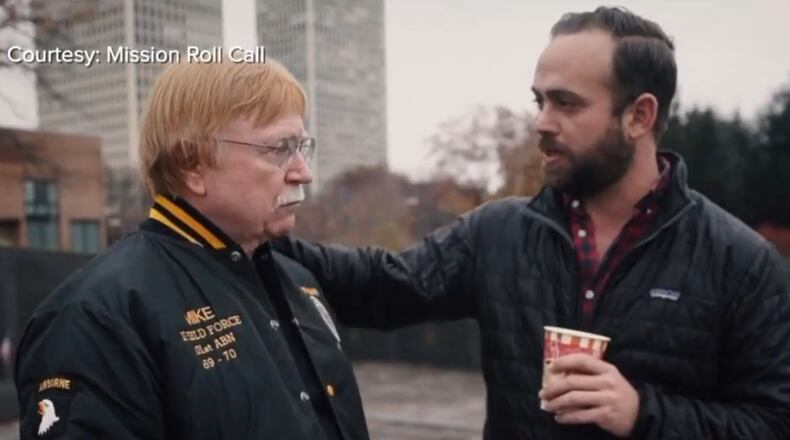Lyle joined the Corps right out of high school, starting in a role as a diesel mechanic and eventually deploying to Afghanistan.
“So, I really enjoyed my time in the military,” Lyle said. “Obviously, there were challenges associated with it. Not all of it was good, but, you know, I decided in 2014, that I just wanted to go a different direction. And so, I got out in 2014, and my issues ultimately led me back to service in another form.”
That service was spent in Washington D.C. as Lyle spent time working for a member of Congress for three years, witnessing as he describes it the work at the strategic policy level. In addition, Lyle said he worked within the VA and got a perspective on what other veterans are dealing with on a daily basis and how those held responsible to seek out solutions work.
Now with Mission Roll Call, Lyle said he’s using his knowledge of D.C. and the VA to help find solutions to those daily problems veterans face.
“We regularly poll veterans on issues that are important to them, that are happening almost immediately, so that we can present their kind of unfiltered voice and view on issues — be it suicide prevention, efforts access to care in the community (and) toxic exposures, which is a big deal right now in Congress,” Lyle said. “And we give that information to the committees that handle crafting legislation and to members of Congress with veterans in their district.”
Lyle said he knows preventing suicide is a dynamic challenge wherein one solution does not work for every veteran.
“Suicide prevention inherently is a complicated problem that may not be a result of service-connected mental health issues. It could be acute financial stress, it could be health care, it could be any number of different things,” Lyle said. “And the idea is to connect to those veterans before they get to that point where they’re looking to make an irreversible decision.”
Lyle and his team are going across the country, visiting states with the largest veteran population to get a better idea of what’s going on within these communities directly from policymakers and the veterans themselves.
“We’re doing this state outreach tour because one, it’s important to do outreach and to get veterans connected with organizations that are doing good work in their communities, but two, when we do regional polls, state polls or local polls, we have that data and we can talk to members of Congress,” Lyle said.
Lyle said bringing the personal stories from veterans to members of Congress can also give them a better idea of how similar problems can impact each veteran so differently, ensuring there’s a broader perspective on the solutions necessary to give veterans a hand up.
The number 17 tied to the daily number of veteran suicides is lower than the one-time average number of 22 suggested by the VA, but Lyle said he’s not 100% sure the decrease represents the reality.
“VA actually broadened the timeframe in which they were collecting data. It used to be from 2005 on,” Lyle said. “Now, it includes all the way back to 2001. And to be honest, the suicide epidemic didn’t really manifest for a few years after, you know, Afghanistan, the invasion in Afghanistan and Iraq in 2003.”
Lyle said the broadened timeline for data could have thinned out the average, diluting the data.
“Maybe the numbers have actually gone down,” Lyle said. “But maybe it’s a result of how the VA is collecting statistics, like, it’s such a complicated problem, but ultimately, we do know that veterans that engage with VA community providers are less likely to take their own lives, which is why we encourage that.”
For more information about Mission Roll Call, visit their website at missionrollcall.org. Watch an online interview with Cole Lyle on the Homefront Facebook group page at facebook.com/groups/271290623528837.
About the Author
